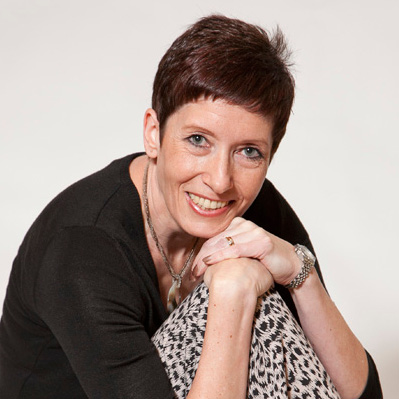 The Little Voice In Our Heads
The Little Voice In Our Heads
Most of us have a little voice in our heads that feeds us commentary on an ongoing basis. Some people may even have several different inner voices with different perspectives. If you turn on your awareness and begin to notice that voice or voices, and consciously process what it is/they are saying, you might be astounded to learn how much of what is going on in your head is negative.
We can be our own worst enemies when it comes to self-esteem (the extent to which we value ourselves) and confidence (the belief in our ability to do something) by undermining ourselves in our inner world. If you had a friend who was constantly pointing out your flaws, expressing doubt in your abilities and criticising your every effort any bets they wouldn’t stay a friend for long.
The Self-Fulfilling Prophesy
What’s really important to recognise is that negative mindchatter can become a self-fulfilling prophesy. There are biological links between our thoughts, our emotions and our body language/physiology.
It’s little wonder that if you go to a job interview or networking event thinking “I’m not good enough for this, I’m going to mess it up, no-one would want to employ/listen to someone like me”, then your emotional state becomes affected, your mood changes, your primitive response to threat kicks in, you begin to suffer the symptoms of nerves or fear, your body hunches over in a protective, ‘low power’ position and you walk into the room looking as if you’d rather not be there, stumble on your words and apologise for existing.
Who would blame the interviewer/people in the room for not wanting to engage with you?
The Chimp Paradox
In his book ‘The Chimp Paradox’, Steve Peters characterises the primitive limbic part of our brain as the “Chimp” – emotional, irrational and based on perceptions. This is where our negative inner voice comes from as our Chimp responds to perceived threats that might affect its survival.
The paradox is that our Chimp can be both our best friend (protecting us from harmful situations) and our worst enemy (keeping us within our comfort zone and reacting emotionally to exaggerated perceptions of danger).
Perceptions and Beliefs
“Perceptions” is a key word here. We all have beliefs about ourselves and our abilities and how others view us.
Beliefs are the stories we tell ourselves that build up our version of ‘reality’. They inform the decisions we take and the way we live our lives and underpin our self esteem and confidence. Some are helpful and some can be destructive – as Henry Ford highlighted in his quote: “If you think you can do a thing or think you can’t do a thing, you’re right!”
One might feel empowered by believing things such as:
- The world’s my oyster
- Success comes to those who persevere
- If I want to do something I’ll find a way
And held back by limiting beliefs such as:
- People like me don’t get jobs with global companies
- I can’t do it
- Nobody appreciates me
- I never have enough time
Deep-Seated Beliefs
The beliefs we hold are often deep-seated and come from figures of influence in our early lives – our parents, relatives, teachers, etc. They can also come from playground taunts. Identity statements such as ‘you’re an idiot’, ‘big nose’, ‘useless’, ‘fatty’, etc, can undermine confidence and self esteem and provoke our Chimp.
Plant A Positive Seed Not A Weed
Unhelpful or limiting beliefs are like weeds – it’s possible to uproot them but better if we plant a seed of something positive that we can nurture and grow. Here’s how:
Step 1
Notice when your negative self talk is active and identify what it is saying and in what situation.
You might begin to notice a pattern of the beliefs or stories it is telling you.
Step 2
Acknowledge the inner critic in your head– some people find it helpful to give it a name or a character – take Steve Peters’ idea of the Chimp if that works for you. Maybe experiment with repeating what it’s said in a silly voice to lessen its credibility.
Step 3
Question what the voice is saying using the logical side of your brain. What factual evidence is it based on? If the belief was seeded by something someone said, what credibility do they have to make that judgement?
Take for example the negative statement:
“I always make a mess of things”
Question: is it true that I always mess up? When is an example of when I did things well?
Step 4
‘Reframe’ the negative belief in a positive way that enables acceptance and learning:
“Like most people, sometimes I get things wrong, but I can learn from my mistakes and give myself credit for when I do things well.”
This type of statement is often called a positive affirmation. Create as many as you find helpful to address the negative self talk. Here are a few more examples:
- I believe in my capabilities and value the unique talents I can offer the world
- I accept me for what I am
- I am a valuable and important person and worthy of the respect of others
Step 5
Use your body language to act confident – just like actors can become characters, if we strike a confident pose we can bluff our brain into believing we have the confidence we need.
Imagine how someone who is as confident as you want to be would stand/sit, move, gesture, breathe, talk and view the world. You will find that you begin to experience the feelings of confidence and there are ways in which this ‘resourceful state’ can be captured so that you can regain it whenever you need it.
Practical Tips To Improve Your Confidence
Here are 3 practical things you can have a go at to improve your confidence:
- Keep a confidence diary for a week – helping you to lower your reliance on feedback from others by evaluating your performance yourself. Each day look back and identify:
- 3 things that you are pleased with yourself for
- 3 things that you learned that you can do something about and the positive actions that you will take
Take a moment to remind yourself that it is more important to take the feedback from things that could have gone better and do something with it that to dwell on who was to blame or self criticism.
- Write down what you admire about yourself? Indulge a little and make a list of all the strengths and qualities you have. If you find it difficult to do this yourself, imagine asking a selection of people whose views you value what your positive characteristics are.
- Be prepared – whether it’s a meeting, social event, exam or presentation, being prepared, knowing your stuff thoroughly and avoiding last minute rushes are essentials for a confident you.
Bio
 Zoë Whitby of ZW Coaching is based in Knaresborough (UK) and works with individuals to improve their personal skills to perform better in their careers and in wider life. Confidence in approaching interviews, presenting and networking is a common area where negative self talk (and self deprecating statements made out loud) affect performance.
Zoë Whitby of ZW Coaching is based in Knaresborough (UK) and works with individuals to improve their personal skills to perform better in their careers and in wider life. Confidence in approaching interviews, presenting and networking is a common area where negative self talk (and self deprecating statements made out loud) affect performance.
Find more helpful articles on her blog at www.zwcoaching.co.uk or contact Zoë directly for a complimentary consultation zoe@zwcoaching.co.uk.

 The Little Voice In Our Heads
The Little Voice In Our Heads






